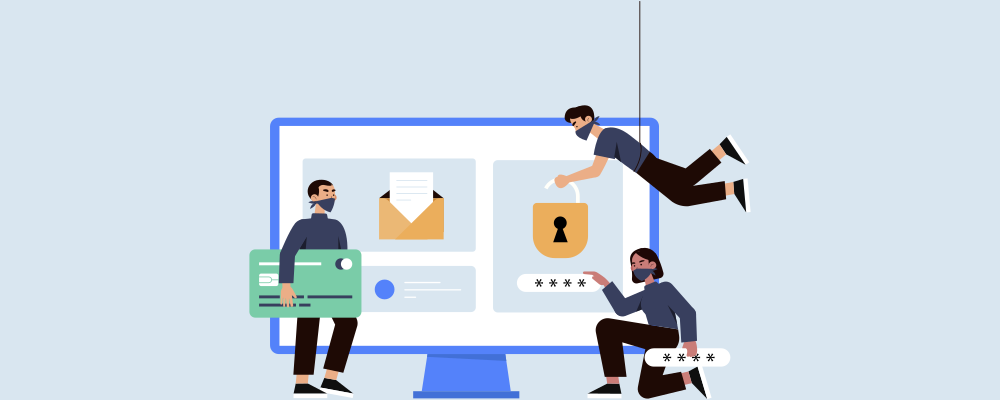
Table of Contents
Here’s a security checklist for shared hosting environments to help mitigate common security risks and protect websites hosted on shared hosting servers:

Choose a Reputable Hosting Provider:
- Select a hosting provider with a strong reputation for security and reliability. Research their security practices, data protection measures, and adherence to industry standards.
Keep Software Updated:
- Regularly update the website’s content management system (CMS), plugins, themes, and any other software to patch security vulnerabilities and protect against exploits.
Use Strong Authentication:
- Enforce strong passwords for all accounts, including FTP, cPanel, and database accounts. Consider implementing two-factor authentication (2FA) for added security.
Secure File Permissions:
- Set appropriate file permissions to restrict access to sensitive files and directories. Ensure that directories are not publicly writable and limit file permissions to the minimum necessary.
Enable SSL/TLS Encryption:
- Install an SSL/TLS certificate to encrypt data transmitted between the website and visitors’ browsers. This helps protect sensitive information, such as login credentials and payment details.
Implement Web Application Firewall (WAF):
- Use a web application firewall (WAF) to filter and monitor HTTP traffic, block malicious requests, and protect against common web-based attacks like SQL injection and cross-site scripting (XSS).
Enable Security Features:
- Take advantage of built-in security features provided by the hosting provider, such as DDoS protection, brute force protection, and intrusion detection/prevention systems (IDS/IPS).
Can Shared Hosting Be Hacked?
Yes, a general rule is that anything hosted on the internet can (and will) be hacked. Internal resources can also be attacked or exposed. Publicly hosted applications are exposed to anyone with an internet connection, and they have a higher risk of being exploited. All applications have at least one bug, and even just one bug could be exploited and used to steal data or install malware on the server. Shared hosting has additional risks since hundreds of sites hosted on the server increase risk of a compromise.
Regular Backups:
- Set up regular backups of website files, databases, and configuration settings. Store backups securely on remote servers or cloud storage platforms to ensure data recovery in case of a security incident or data loss.
Monitor Website Activity:
- Monitor website logs, server logs, and security alerts for suspicious activity, unauthorized access attempts, and abnormal traffic patterns. Use intrusion detection systems (IDS) or security monitoring tools to detect and respond to security threats promptly.
What are Potential Problems with Shared Hosting?
Shared hosting is affordable, but it may come at the price of security and separation from other site owners. Since you cannot control what happens on other sites, including security and content, using shared hosting can affect your site. You should consider these issues when you look for shared hosting, but every hosting provider has its way of managing the websites on its servers.
Prevent Spam
Website crawlers evaluate various parameters to rank websites, and the comment section is one of them. If your website is overwhelmed with spam comments, it can negatively affect your ranking. To prevent this, consider choosing a hosting service that provides spam detection. Identifying and removing spam early on will help maintain your website’s credibility and improve its ranking.
Secure Email Accounts:
- Secure email accounts associated with the website by using strong passwords, enabling spam filtering, and implementing email authentication mechanisms like SPF, DKIM, and DMARC.
Regular Security Audits:
- Conduct regular security audits and vulnerability assessments to identify and address security weaknesses proactively. Perform security scans, code reviews, and penetration testing to assess the security posture of the website.
Educate Users:
- Educate website administrators, developers, and users about common security best practices, such as avoiding phishing scams, using secure passwords, and staying vigilant against social engineering attacks.
Conclusion for Web Hosting Security Checklist
Web Hosting Security Checklist for 2024 provides essential guidelines to ensure the utmost security for your website. By adhering to these recommendations, you can effectively safeguard your website against potential threats and vulnerabilities. Protecting your website is of utmost importance, and by following the latest security measures, you can create a robust defense against cyberattacks and maintain a safe online environment for your users.
By following these security best practices and implementing proactive security measures, website owners can enhance the security of their websites hosted on shared hosting environments and reduce the risk of security breaches and data compromises.